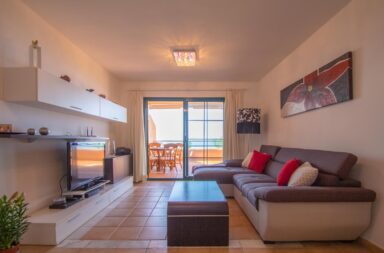In recent years, the alternative of selling the bare ownership of a home has been gaining momentum. A way that allows homeowners over 65 years of age to obtain liquidity through the sale of their home, but without ceasing to live in it for the rest of their lives.
And how is it possible to sell the house without giving up the usufruct for life? The key is to understand that the full ownership of a property is divided into two parts: the usufruct and the bare ownership. The former is the right to use the property and the latter is the property itself. Thus, the ownership of a property can be sold, but not the right to use and enjoy it for life.
In Spain there are many companies specialising in this type of operation and since the beginning of the year there has even been a real estate franchise, promoted by the consultant Eduardo Molet.
Molet himself reminds us that «citizens have been using our savings for many, many years to buy a home. The accumulated savings of the over-65s in Spain in housing is more than six times higher than the accumulated savings in all private pension plans and at a certain age it is time to make these savings profitable». And he insists that «our seniors say that they want to continue living and enjoying their home, with their things, their comforts and their memories until they die, even if they are very old and require home care or are dependent». For this reason, «we must normalise the idea of using the savings accumulated through the home during retirement, as opposed to the culture of inheritance, which tied us to the idea that the house is only for our relatives to inherit».
Along the same lines, Pablo Vidal, senior associate in the Tax Department at Lexpal Lawyers, maintains that «the progressive ageing of the population and the circumstances of the real estate market in the current economic situation have accentuated the existing difference between the level of income and the value of properties. For this reason, it is becoming increasingly common for elderly owners to put their properties up for sale, reserving the usufruct for life of these properties, being able to enjoy the capital gains linked to their properties during their lifetime».
In view of the growing number of elderly people who are thinking of selling the bare ownership of their home to earn some extra income and the interest of investors and individuals in buying residential properties, we review the main keys to an operation of this kind, from the need to sign it before a notary to avoid future problems to the taxes to be paid by each party and how the maintenance costs of the property in question are to be shared out.
General considerations
The first thing to be clear about is that the seller of the bare property must be at least 65 years old, although the most common age for this type of transaction is 75 and over. Furthermore, these transactions are usually reserved for properties located in large cities such as Madrid, Barcelona, Palma de Mallorca, Bilbao, Valencia, Seville, Alicante or Las Palmas, and in tourist areas such as Marbella or Benidorm.
For example, Grupo Retiro, a law firm dedicated for 25 years to advising and brokering products for the elderly that allow them to make their real estate assets profitable and which has the bare ownership of several properties for sale on idealista, only manages operations in towns with more than 50,000 inhabitants, but recognises that there are areas of tourist interest that may be viable in towns with fewer inhabitants. In fact, it is hoped that the formula will also be extended to secondary towns and small municipalities, where there is less real estate activity and the product is still unknown.
Another factor to be taken into account is that the sale of the bare ownership of the property is not carried out at market prices, but at a discount. The range is wide (the discount can be between 20% and 60%, approximately), depending on the location and characteristics of the property, as well as the seller’s age and potential life expectancy. Generally speaking, the older the owner, the lower the price discount and vice versa.
But the mere fact that a discount is applied is one of the advantages for the buyer, whether an investor or a private individual, because they can acquire a property at a lower price, although they will not have the right to enjoy it temporarily (until the death of the seller, who remains the usufructuary).
As real estate consultant Eduardo Molet insists, it is a «profitable alternative for an investor, as he acquires ownership of a property at a very low price and in the medium or long term finds himself with full ownership of a property for which he paid very little years ago», and it is also an «investment with a social dimension».


